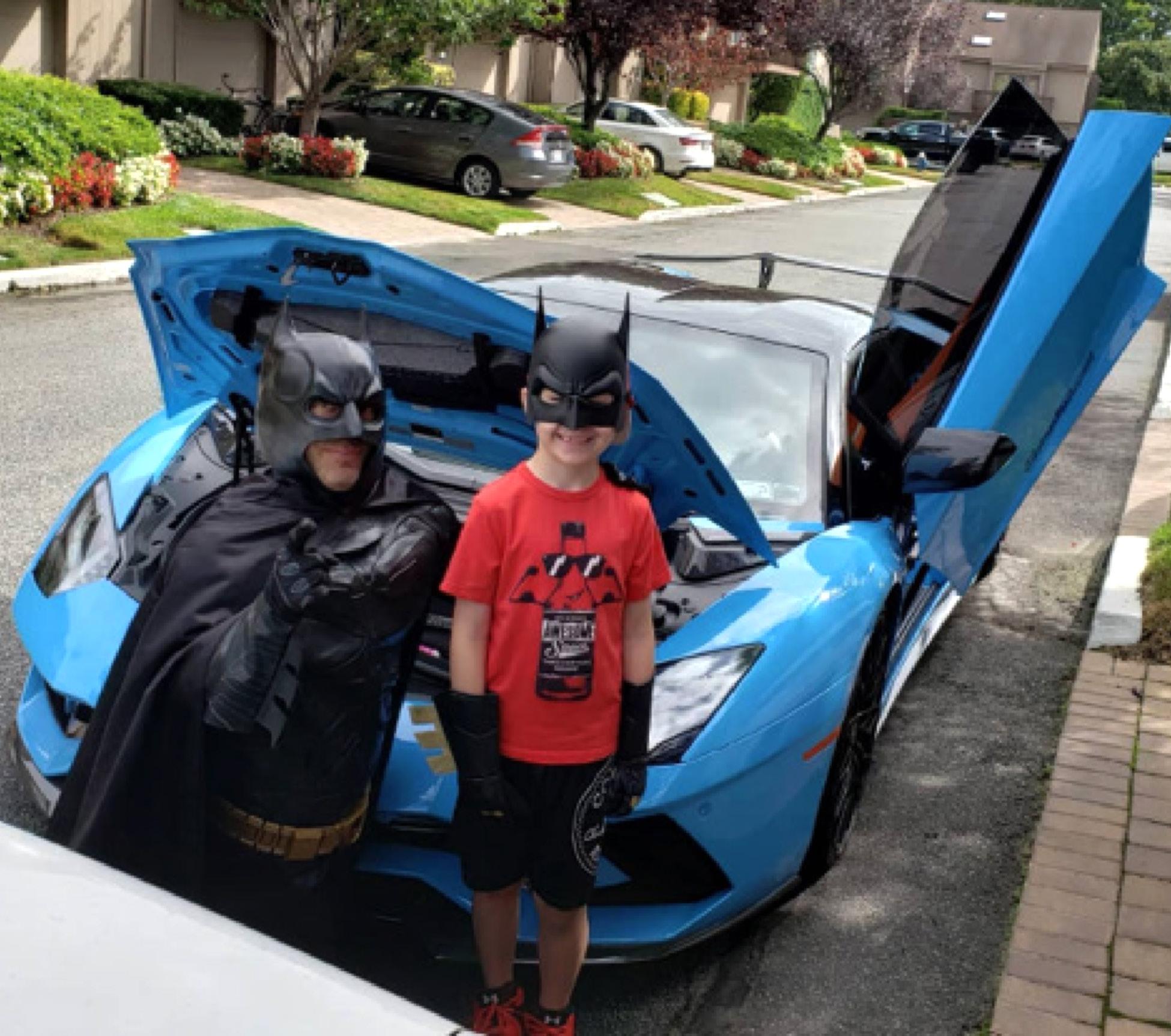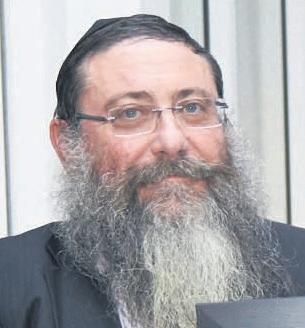
3 minute read
Batman, Batmobiles and helping sick children
Now, he’ll show up in either the Lamborghini or Rolls Royce that belongs to his organisation. Avi Karadi of ASAP Restoration in Hewlett, New York, the non-profit’s main sponsor, donated the two cars.
Along with visiting hospitals and homes, Smiles Through Cars feeds the hungry during Chanukah and provides Shabbat needs to those in need.
They also give out gift cards to children so they can go on shopping sprees and take kids to basketball games. If a child doesn’t live in New York or nearby, Aryeh will arrange a FaceTime with one of the volunteers.
He estimates that he’s helped more than 50,000 people in states like New York, Florida and Nevada, and he posts inspiring stories on his group’s Instagrams, @batmanrealaccount and @smilesthroughcars, which have nearly 500,000 followers.
Aryeh frequently receives messages from followers who are touched by what he’s doing. “People message me and say I’m the reason they’re alive,” he said.
“They tell me they’ve been going through some of the worst times of their life and they’ve been contemplating suicide because they’ve had enough. But seeing our page day after day and what we’re doing gave them hope. You never realise how far your small, random act of kindness will go.”
No Stranger to Pain
Unfortunately, Aryeh is no stranger to pain. Seventeen years ago, his sister Aviva came back from seminary in Israel before Passover and one night she fell ill. Aryeh woke up to the sound of paramedics in his home.
“I thought they were there for my dad who had health issues,” he said. “But I saw my sister’s lips turning blue from a lack of oxygen.”
For the next week, Aryeh and his family were by his sister’s bedside at the hospital. She almost passed away multiple times.
“It was a complete rollercoaster,” he said.
After a week, Aviva tragically died and her family sat shiva until Passover.
“I know what it’s like to be in the hospital, praying for a loved one to pull through,” Aryeh said. “I couldn’t save my sister, but I could try to save someone else’s daughter, sister or sibling. I could be there for them. That’s why I’m so empathetic and passionate about what I do.”
Aryeh isn’t afraid to be open about his personal struggles. In addition to telling his sister’s story, he also posts about going to funerals for children who sadly didn’t make it. He wants people to see the reality of the situation.
“It’s not easy whether I do it once or a million times,” he said. “I see a child suffering. It’s a horrible thing; you see what families go through.
It’s really tough, so it’s important to know it’s okay to be sad and speak to someone. I go to a therapist once a week because it’s so sad at times. It’s important to surround ourselves with people who understand.”
Even though his work might be upsetting sometimes, Aryeh wouldn’t trade it for anything else. Instead, he transforms his pain into positivity.
“I say a prayer that whatever pain a child is going through will go away,” he said. “You just can’t understand why a three-month-old, or any child, would have cancer. All you can do is say there’s a greater plan and you’re a part of it. We’re all a part of it.”
Being part of it means treating one another with kindness and love. It doesn’t take much to do that, Aryeh said. “It can start with one good deed at a time. It could be as simple as putting on a costume.”
RABBINIC THOUGHT
RABBI LEVI WOLFF CHIEF MINISTER THE CENTRAL SYNAGOGUE

The joyous festival of Purim is now here and is unique among Jewish holidays in many ways. To contextualise this, if we think about the chaggim, festivals, consider this snapshot: Pesach is celebrated on the exact date the Israelites left Egypt. Shavuot is the precise time G-d gave us the Torah on Mt. Sinai. Yom Kippur is the tenth of Tishrei because that is the day G-d forgave the Jewish people for the sin of the golden calf. All of these and more are commemorated within windows of time as they are historic anniversaries.
In direct contrast, our deliverance from the evil Haman — who sought to annihilate all Jews in ancient Persia — occurred on the 13th of Adar. Why then did our sages mandate that we specifically celebrate on the following day, the 14th of Adar as the designated holiday? It would be akin to celebrating our meaningful ANZAC Day on April 26th or in the northern hemisphere, American Independence Day on July 5th instead of July 4th.
What is special about the day after?
What does it commemorate?
The answer goes beyond a calendar calculation. There are two ways in which a fragmented group of people









